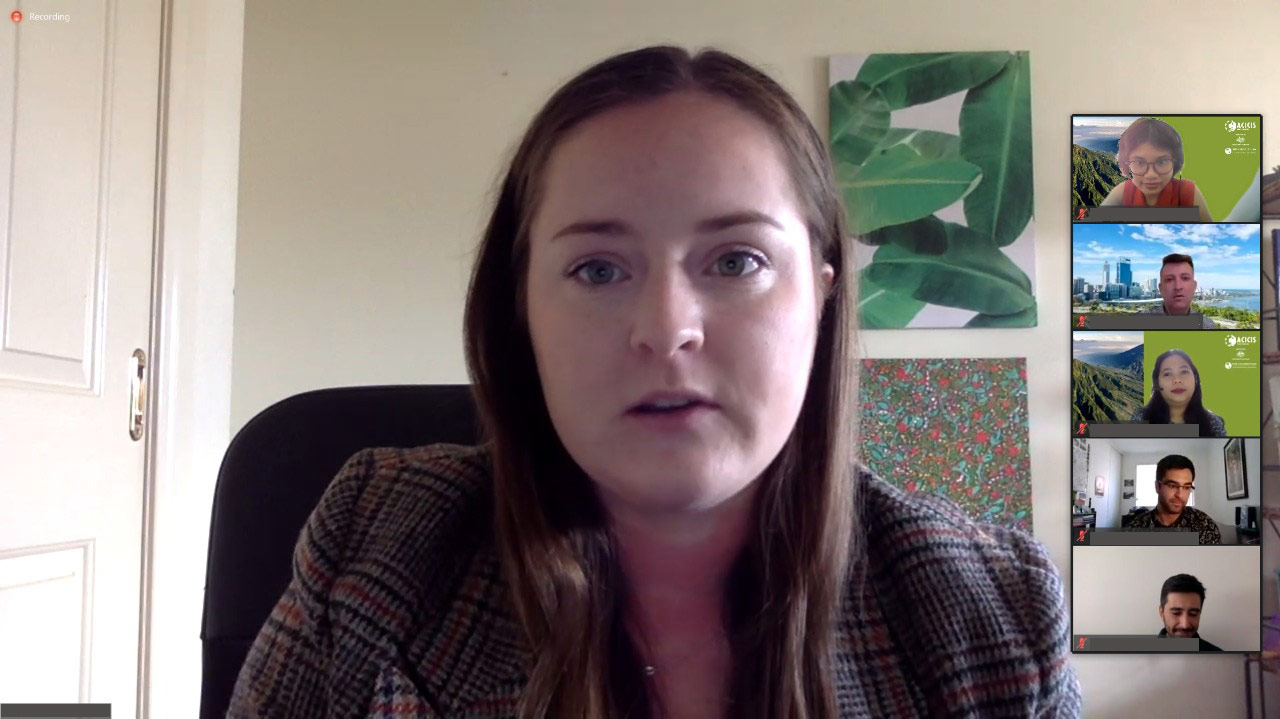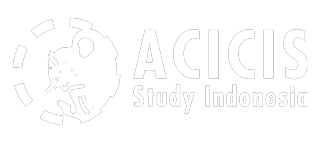By Sienna Curnow* & JPP students (Virtual JPP 2021)
RMIT University
Selamat pagi atau selamat siang. I’d just like to start by saying thank you to the rest of the JPP students who collaborated on this speech to come. Our entire cohort has come together to share their experiences, standing as testament in itself to the relationships built between us all throughout the program. I pay my respects to the owners on whose land I share this from, the Wurundjeri People of the Kulin Nation and the lands on which this is heard from. The JPP has given us the opportunity to engage critically and deeply with media studies and the workforce in Indonesia to understand the cultural, political and social lenses of Indonesia all from the comfort of our homes. We are all very grateful for the opportunity to learn Bahasa Indonesia, engage with Indonesian media and gain practical knowledge of the relationship between our two nations. During our seminars, we engaged with journalists from media outlets such as Al Jazeera, Mongabay, The Conversation and the Jakarta Post which gave us an insight on a range of topics, from reporting on the environment to hoaxes and fake news in Indonesia.
Febriana Firdaus, an Independent Journalist gave JPP students valuable insight into feminist reporting and digital feminism in Indonesia. Through her presentation, we were able to understand the complexities surrounding gendered power relations in reporting and ways to avert perpetuating stereotypes through applying gender sensitive language in our own journalistic practices. In the lecture on reporting on the environment in contemporary Indonesia, the class discussed important issues with Mr Phillip Jacobson, a famous journalist from Mongabay.
The seminar we received from Mohammad Faisal and Dr Greta Nabbs-Keller regarding the Australia-Indonesia relationship provided us with great insights into the implications of the IA-CEPA agreement and the recent ups and downs of our bilateral relationship. Of particular interest for us was Dr Nabbs-Keller’s emphasis on avoiding sensationalist news coverage that can impair Australians’ understanding of Indonesia and instead provide consistently balanced and measured coverage.
This first-hand experience has been crucial in understanding the important skills necessary to work as a journalist. Our experiences such as the virtual tour of CNBC has also demonstrated the mechanisms within different news organisations for broadcast media. Through the virtual field trip with Divers Clean Action, we were also able to see how ecotourism is evolving and how we as reporters can promote sustainability narratives in our storytelling.
Viewing the films Jalanan and The Staging Post and having the chance to converse with their creators further emphasises the importance of understanding one another to share stories across cultural backgrounds.
With 14 participants, we interned across a variety of host organisations.
Xenia was placed at InClover. InClover is a bi-monthly travel and lifestyle magazine for business and industry professionals. As part of her placement, she attended virtual events on finance and art and also researched and wrote travel and wellness articles for both the website and the upcoming magazine issue.
Chantal had the pleasure of being placed with one of the world’s largest NGOs – Amnesty International Indonesia. As a whole, the JPP cohort learned about human rights issues including women’s rights. Through her placement she was fortunate enough to be involved in a number of discussions about this and other human rights issues including freedom of the press/freedom of speech, freedom of thought and religion, and the current situation in West Papua. Chantal was given a front row seat to the opinions of activists, police, political representatives, community group representatives and the general public and learned how to write about these issues in an environment that does not always look too favourably upon the work many journalists do in this sphere.
Simone and Annabel’s host organisation was Divers Clean Action, a youth NGO that focuses on marine debris clean-up and community education on sustainability. There she had the opportunity to practice her skills in writing, editing, content creation and curating posts across different social media platforms. After witnessing the virtual tour, she (and the rest of us) are very excited to hopefully visit Indonesia in the future to physically explore DCA’s work on the Thousand Islands.
Amy, Jacinta and Charlie’s host organisation was the Centre for Strategic and International Studies, a think tank based in Jakarta. As part of their placement, they were given the opportunity to work on lots of different projects – copyediting book chapters, data entry, attending seminars and writing reviews – to get a taste of varied research life. They helped update older publications with recent global occurrences I.e Covid. This past week we have all worked on our own commentary pieces which may/or may not get published by CSIS.
At The Jakarta Post, the leading English language newspaper in Indonesia, Edan and Abigail had the opportunity to write articles about the many Australians and Indonesians who are working to strengthen the bilateral relationship through research, business and sport. Abigail described The Jakarta Post as a point of entry into her practice as a journalist and into Indonesia itself, vibrancy and complexities included.
Over at the Jakarta Globe, myself, Elena and Meleva were given the opportunity to engage in a range of topics and article styles to report on events, businesses and topics important to the readers of this English multimedia news outlet. With Jakarta Globe we were tasked with interviewing community members, executives, leaders and more to share their stories, allowing us to replicate the experience of the contemporary journalism industry. Whether we were pitching stories, taking on assignments or copyediting articles, some even written by people such as the president of Poland, we were able to dip our toes into the waters of day-to-day journalism.
The ACICIS JPP has provided invaluable insight into the media landscape of Indonesia and presented an opportunity for engagement and reflection upon the similar issues which face both Australian and Indonesian press freedoms. On behalf of the JPP cohort there has been a lot of valuable learning experiences which we the students are extremely grateful for. To Ella and Diana, you’ve been incredible at supporting us all and encouraging us to embrace the learning curves as they came. There’s a lot of incredible people who’ve participated in the JPP and I look forward to seeing where everyone takes these learnings domestically and hopefully in Indonesia together someday. Terima kasih banyak dan sampai jumpa.
*This was delivered as a speech at the Virtual Practicum Program Closing Ceremony in February 2021.

